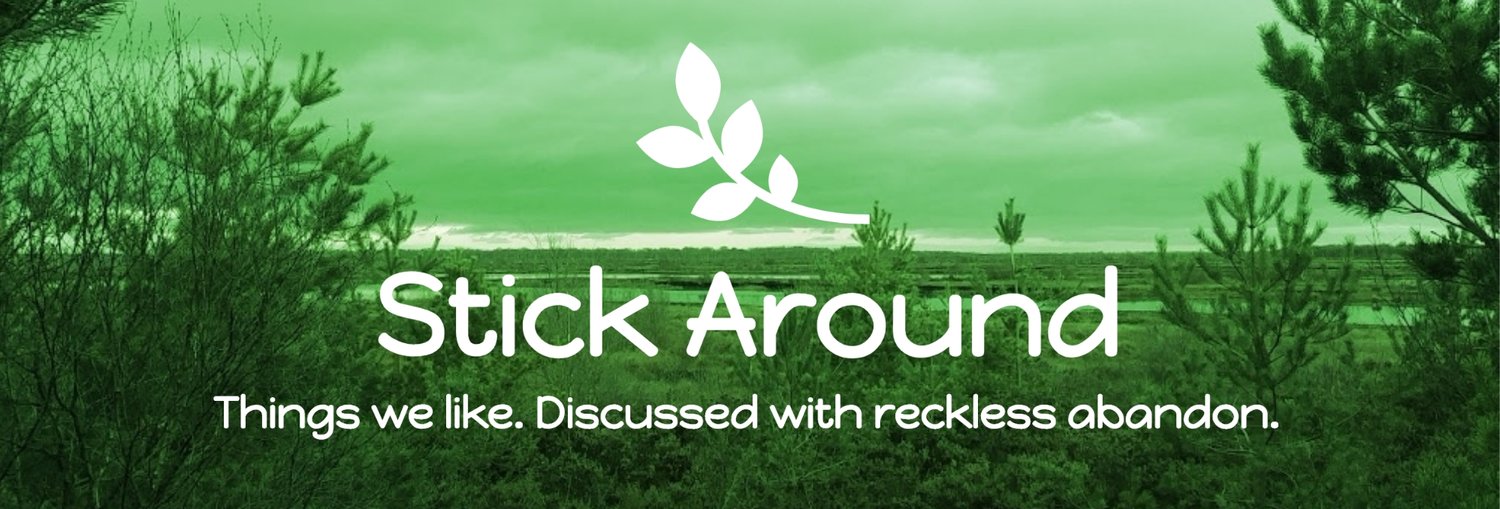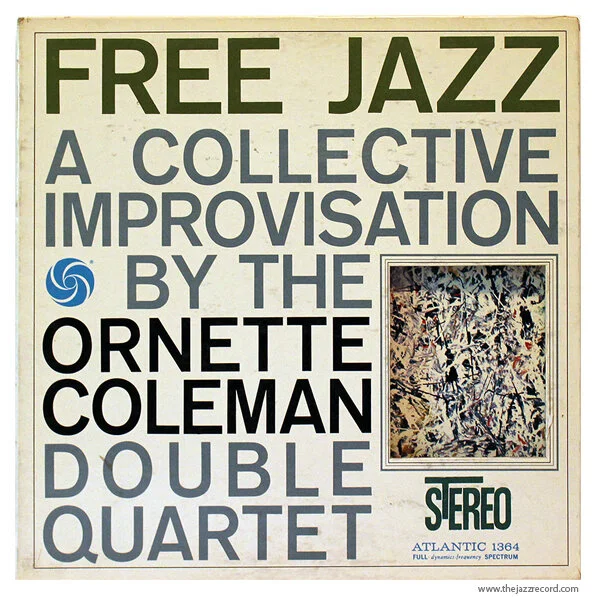1961 - Clive's Top 5 Albums of Every Year Challenge
Over what will likely be the next few years I’m going to be ranking and reviewing the top 5 albums according to users on rateyourmusic.com (think IMDB for music) from every year from 1960 to the present. If you want to know more, I wrote an introduction to the ‘challenge’ here.
The year is 1961. The Berlin Wall was built and Cuban exiles failed to invade Cuba through the Bay of Pigs. Electric toothbrushes and Barbie’s companion Ken are introduced. But let’s have a look at what our wonderful rateyourmusic.com users rated as the year’s top 5 albums:
#1 John Coltrane - My Favourite Things
#2 John Coltrane - Ole Coltrane
#3 The John Coltrane Quartet - Africa/Brass
#4 Columbia Symphony Orchestra / Igor Stravinsky - Stravinsky Conducts Le Sacre du printemps
#5 The Ornette Coleman Double Quartet - Free Jazz
Are you serious Coltrane? Give these other guys a chance would you? My word. Well it looks like we’re in for another load of jazz and our very first classical entry. A quick look through the rest of the top 15 or so reveals a load more jazz, so I’ll pass on adding any extras for the time being.
Let’s crack on, here’s my thoughts and ranking of the above 5 albums:
5. Ole
John Coltrane
Coltrane’s ninth album, which features Spanish influences (like Miles Davis’ Sketches of Spain did in 1960), was the last album he led on for Atlantic Records before moving to his new label Impulse! Records.
This one feels a bit by the numbers for Coltrane, if anything he touches can ever be called such a thing. There’s nothing that jumps out as being distinct from his other work. The soprano saxophone makes a return following its debut on My Favourite Things, which we’ll get to soon, but in a less interesting manner.
There’s plenty here to like, Coltranes’s playing is still impressive, and I particularly like Reggie Workman and Art Davis’ bass work which has a lovely relaxed, melodic feel, interspersed with more aggressive almost distorted sounding segments. The piano work just doesn’t gel as well with Coltrane this time, and it feels as if something indescribable is missing somewhat, perhaps it’s the gaps Coltrane leaves between solos where not all that much happens? I’m not sure.
The traditional slower track here is Aisha, which is a beauty and particularly notable for how well Coltrane and Eric Dolphy’s saxophones play off each other in the middle of the song. Like Marmite and cheese, a dream.
There’s no doubt this is really good, it’s just not quite up to some of his other work for me. But hey, what do I know?
Song Picks: Ole, Aisha
7/10
4. My Favourite Things
John Coltrane
Coltrane’s 7th studio album is the first to feature him playing the soprano saxophone, the smaller, more high-pitched sax he is playing on the cover. An edited version of the title track, which features the melody from the famous song in The Sound of Music was a hit and was regularly played on the radio in 1961. I presume it was significantly shorter than the nearly 14 minute version here.
Miles Davis purchased Coltrane the aforementioned soprano saxophone on a previous tour and it features on the first half of the album, giving Coltrane’s playing a higher, less sombre tone, which makes these recordings stick out somewhat from others I’ve heard so far.
The opener My Favourite Things anchors itself on the famous melody I’ve already mentioned but also features plenty of Coltrane’s virtuoso soloing during it’s long run-time, which is all the more enthralling now that he’s having a go at a slightly different instrument. It’s a quick, busy track which sounds perhaps as summery as anything I’ve heard from Coltrane. On Everytime We Say Goodbye Coltrane reigns it in and demonstrates once more how he’s just as capable of playing something slow and melodic, as he is fast and chaotic. A beautiful piece where the snare sounds as gentle as sand and the bass plods along unassumingly, giving the whole thing a really relaxed feel. McCoy Tyner’s lovely twinkling piano also deserves a mention here, really adding to the contemplative, meditative feel of the track.
The second half features Coltrane back on the familiar tenor sax, and back to his busy old ways, buzzing around the neck like someone with 53 incredibly well coordinated fingers on each hand. As with most of 1961’s offerings, this one requires attentive listening, Coltrane’s playing is a little too aggressive for background listening. Sit back, close your eyes, and let Coltrane’s whirlwind saxophone playing take you away.
Song Picks: Everytime We Say Goodbye
7.5/10
3. Le Sacre du Printemps
Igor Stravinsky/Columbia Symphony Orchestra
‘The Rites of Spring’ as it’s known in English is a ballet and orchestral work originally written in 1913 by Igor Stravinsky and conducted by him here on this recording from 1960 (released in 1961). I’m not sure classical works like this can really be considered ‘albums’ but there’s so few of them that will appear over the next few years and none after 1965. So I figured it’d be good to review some of them while I can.
As Wikipedia states the work is for a scenario that ‘depicts various primitive rituals celebrating the advent of spring, after which a young girl is chosen as a sacrificial victim and dances herself to death.’
As with a lot of classical music, it’s a very intense listen. I feel like the dynamic nature of classical pieces like this is something that hasn’t fully been explored yet in more modern music. One minute, it’s close to silent, and then it suddenly sounds like everyone on the planet in possession of a relevant instrument has got it out and started playing along, it sounds monstrous, in a way that is quite jarring if you’re not paying full attention to it.
Le Sacre du Printemps is dramatic, and you can certainly place certain parts with common film tropes, aspects of Jeux des Cités Rivales for example sound very much like they could be playing during a chase scene. One of the dramatic moments worth mentioning is in the second half of the piece Le Sacrifice, where things start in an ominously relaxed manner, with the odd relatively relaxed gong hit in there to prepare you for what’s to come. Then, the lovely flute lines fade into violins (I think, I’m no expert on classical instruments) before the whole thing explodes into a loud concoction of timpani and loud brass lines with the odd flute flourish over the top. It’s glorious. The work clearly tells a story, and if you, like me, have never seen any performances of The Rites of Spring (or any ballet for that matter), sitting down and seeing what images this piece brings up is quite the experience.
It’s a tight 30 minutes long, and well worth your time. It stands as an important document of a classical piece of composition, conducted by the man who wrote it.
Highlight: Part 2: Le Sacrifice
8/10
2. Africa/Brass
The John Coltrane Quartet
John Coltrane’s 8th studio album, his first on Impulse! Records, and first featuring a big band sound, with 21 participating musicians.
It’s pretty clear that things are different from the opening notes of Africa. There’s a depth to the sound that’s only possible with this many instruments. It sounds like an army of musicians, marching towards an African sunset, led by the ever energetic and noisy Coltrane. The core quartet is still very much here, but there’s a sense of atmosphere and scale added by all these additional musicians that helps this stand out from all the other Coltrane recordings I’ve heard so far.
Africa/Brass feels quite dark, there’s a certain depth and dark reverb to everything, and some of the soundscapes are truly original. Around 12 minutes into the opener Africa all the treble-y instruments take a back seat, and we’re left with the rumbling of drums and what sounds like a viola swirling to create the humming of a small swarm of mosquitoes, which is very effective. Greensleaves takes the melody of the traditional British folk-ballad of the same name and turns it into a virtuoso jazz-piece similar to My Favourite Things, but once again darker. The closing track Blues Minor’s triumphant ending is perhaps the only point in the album where this big band sounds like a true big band, ending the album in a glorious, emphatic blare of horns, before everything calms down to a lovely repeated saxophone line by Coltrane. At only 33 minutes, this is a great showing of what Coltrane does best in a condensed and more accessible package than a lot of his work so far.
Song Picks: Africa, Blues Minor
8/10
1. Free Jazz
The Ornette Coleman Double Quartet
Picture this: Ornette Coleman’s a bit bored, so he decides that for his 7th studio album he’ll assemble not only one band of top name jazz musicians, but two bands, and get them to improvise for 40 minutes in a studio together with practically no idea about what the other band is doing. You’ve just pictured Free Jazz, an album unlike any other I’ve ever heard.
Other than a few brief sections that were pre-determined, this whole thing is just two jazz bands improvising in one room. That’s two drummers, two bassists… yeah, you get the picture. Upon reading this I thought there’s no way this could be anything but a load of jazz noise, and lo and behold, it was just that, a load of jazz noise. My first two attempts to listen to it on headphones led to me aborting mission after around 5 minutes because it was just too much for my ears. An unholy cacophony of jazz noise (one band in my right ear, the other in my left) assaulting my ear-drums in a way they haven’t been assaulted for quite some time. Then, a couple of days later, I put it on on my speakers while cooking up a shakshuka and everything changed…
I was transported back to 1961, I was there with both bands in the studio as they played their instruments, trying to work off each other while playing some very complex stuff, the struggle was real. I had no idea what was going to happen next because they had no idea what was going to happen next. Would Coleman’s swirling saxophone solo end in a bum note? Would the drummer accidentally throw his sticks at someone’s head? Would a chandelier fall from the ceiling and wipe out some of jazz’s finest musicians amid the clatter and crash of glass and metal? It seemed like anything was possible. It was magical. An experience that was truly unique. I’m not sure how many times I’ll actually listen to Free Jazz, but it single handedly invented a genre (the genre free jazz is named after its title), and brought about one of my more memorable musical experiences, one where I felt completely in a moment, not this moment, but one from December 21st, 1960. There I was just cooking up a lovely vegetable and egg dish with Ornette and the gang playing away. I can totally understand why people would hate this, I did on my first two listens. But now I love it. I love its audacity, I love its inventiveness, I love how immediate it is. Give it a go, and you just might love it too. Just make sure you don’t listen on headphones.
In a year where Coltrane pushed a whole multitude of boundaries, Coleman obliterated them, and takes the title for 1961.
9/10






